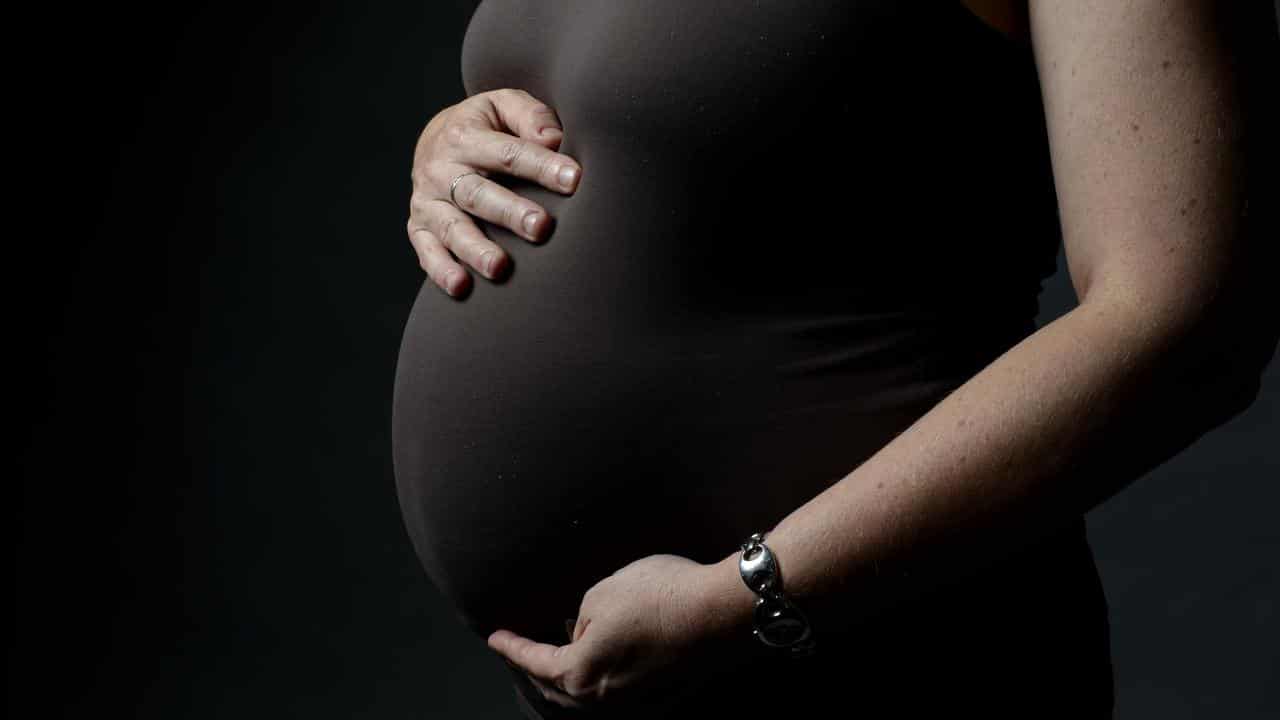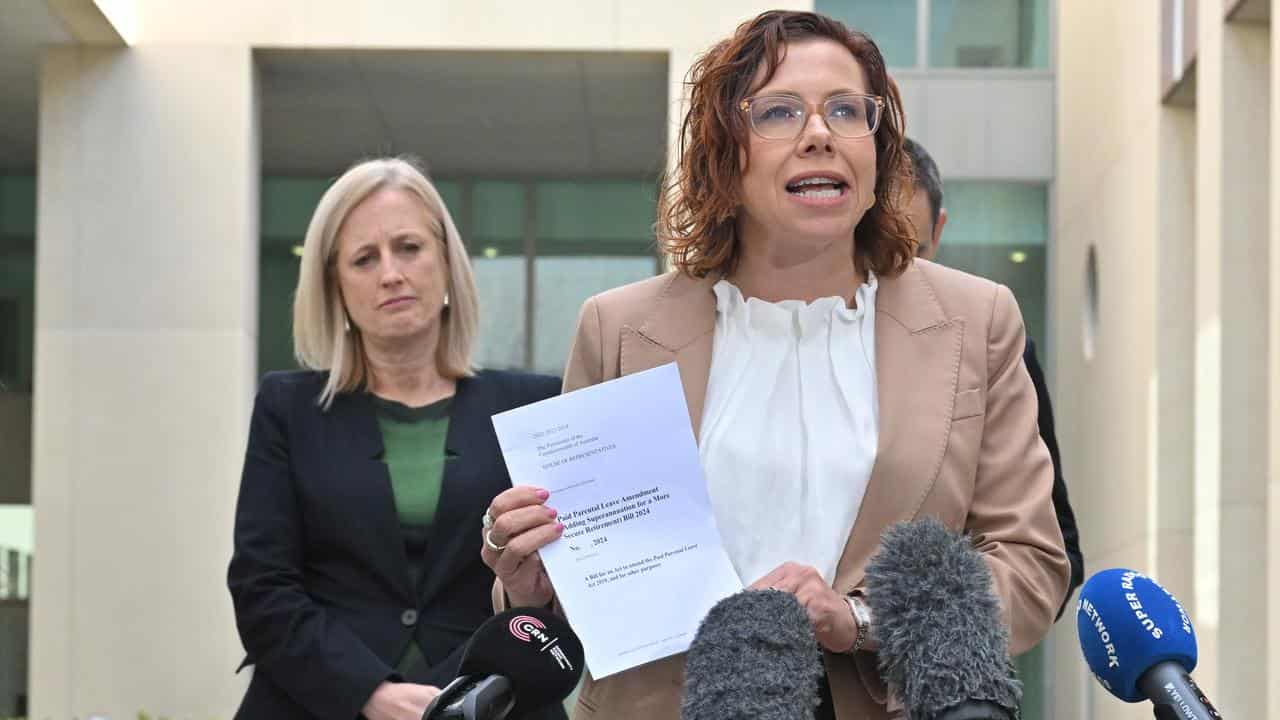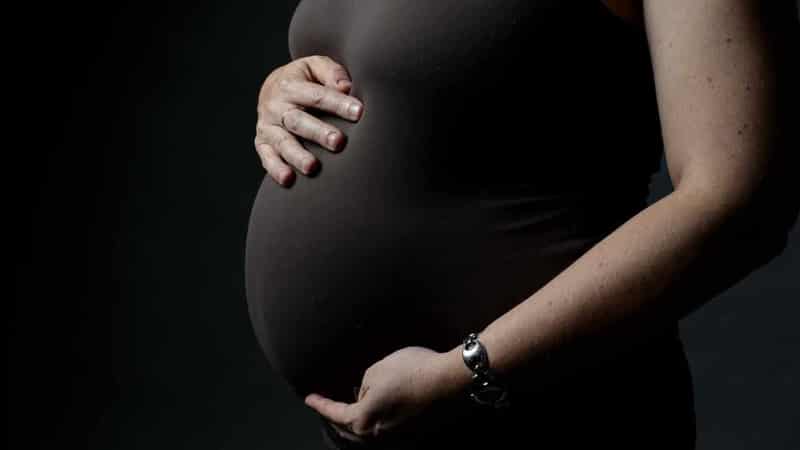
A 'motherhood penalty' for having children will be alleviated and the gender gap reduced with new laws on super payments, the federal government says.
Laws providing for superannuation on top of government-funded paid parental leave have been introduced to parliament in an attempt to lower the gender gap for retirement savings.
From July 2025, 12 per cent superannuation will be paid to parents who are using paid parental leave, which is expected to benefit 180,000 families.
It is expected new parents will receive $3000 in super over the length of their leave, which will expand to six months from 2026.
Figures show women, on average, retire with 25 per cent less in their super balance than men.
Social Services Minister Amanda Rishworth said the laws would boost gender equality and bolster the economic security of women.
"Women make up the majority of primary caregivers in this country, leading to what has been referred to as the motherhood penalty, where they face greater economic insecurity because of time out of the workforce to care for children," she told parliament on Thursday.
"Paying super on paid parental leave is a positive investment in the future of working women and in our broader economy."
Women's Minister Katy Gallagher said men can help eliminate the motherhood penalty by taking parental leave alongside their partner.

"It's really important that we continue to encourage shared care arrangements so that the woman isn't the only parent taking leave," Ms Gallagher said.
"That's changing in Australia and it's really welcome."
While some employers with paid parental leave schemes already pay superannuation on top, the laws would ensure parents using government-funded leave would be able to have the same benefit.
"By paying superannuation on the government scheme, it sends a real message about how important it is for employers to make that contribution as well," Ms Rishworth said.
"We've seen over the last decade or so an increase in employers paying paid parental leave - from 48 per cent to over 60 per cent."
The minister said while the laws would not be a silver bullet in reducing gender gaps for retirement savings, they would help bridge them.
Chief executive of advocacy group The Parenthood, Georgie Dent, said the changes could see people retire with $30,000 more in retirement savings per family, per child.
“The reality is that today in Australia there are so many financial hurdles to having a family – from the cost of early childhood education and care, to lost earnings while out of the workforce,” she said.
“The inclusion of superannuation payments would reinforce that paid parental leave is not a welfare payment, but a workplace entitlement just like annual leave or sick leave."
Super Members Council chief executive Misha Schubert said the bill was a big milestone.
"This historic reform will make a vast difference to the lives and retirement incomes of generations of Australian women," she said.
"Australia must continue to make major advances like this to ensure all women can have a financially secure retirement.”
Blake Briggs, chief executive of the Financial Services Council said the changes would make a significant difference for carers.
“It plays a role in bridging the retirement savings gender gap and improving gender equality in Australia," he said.









